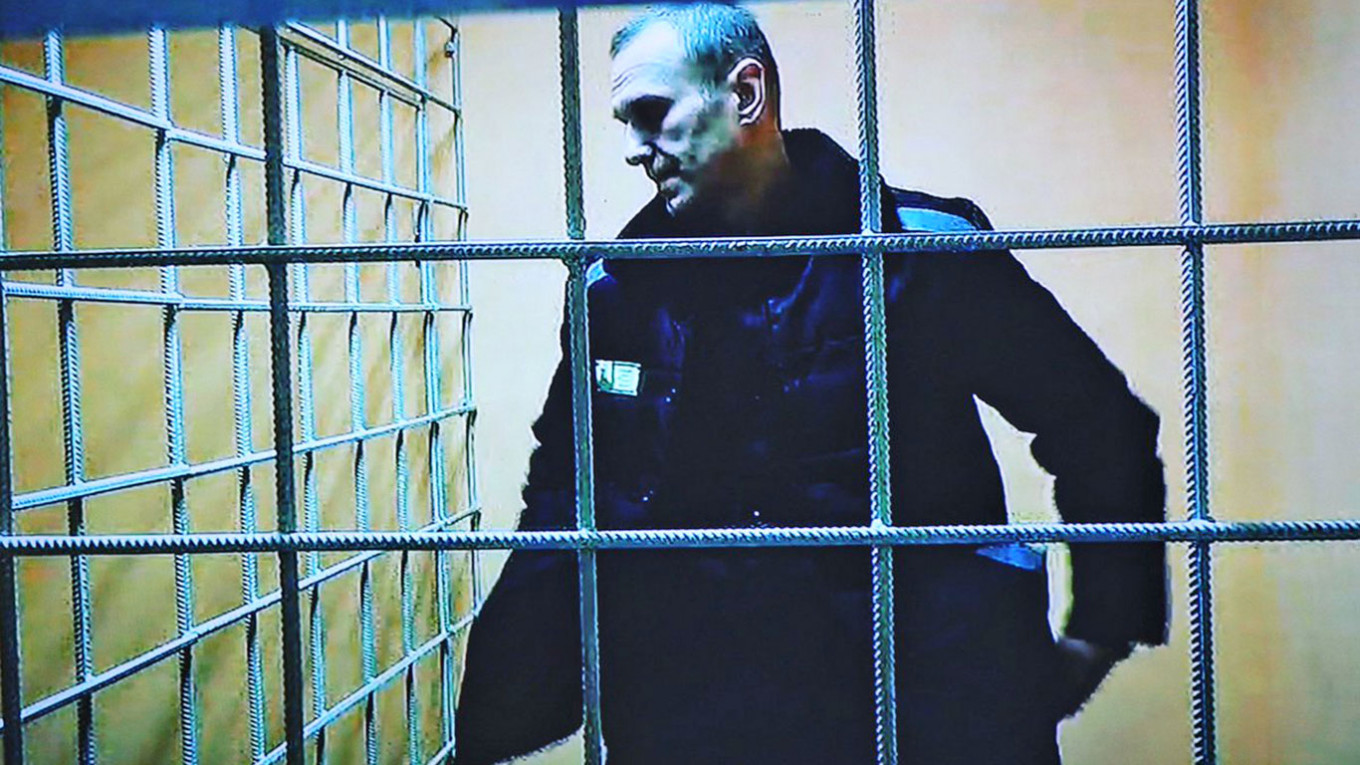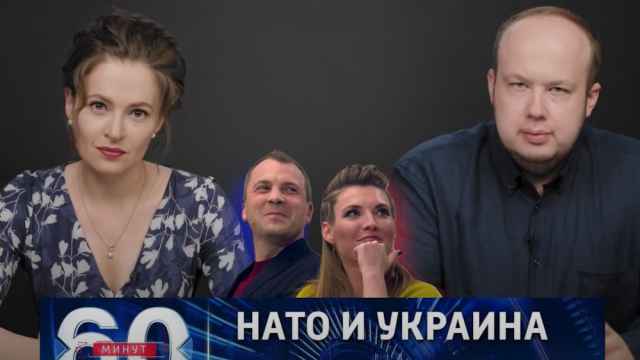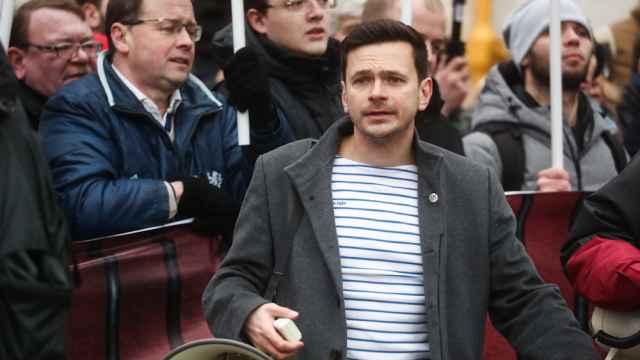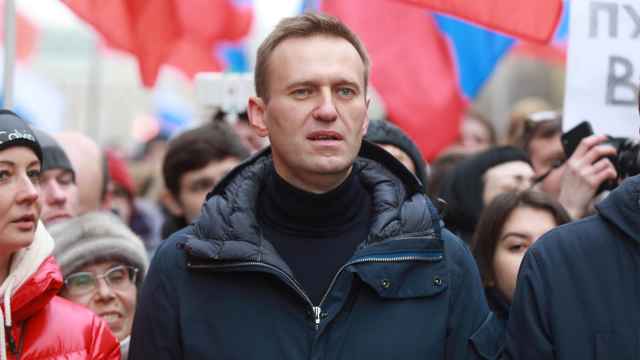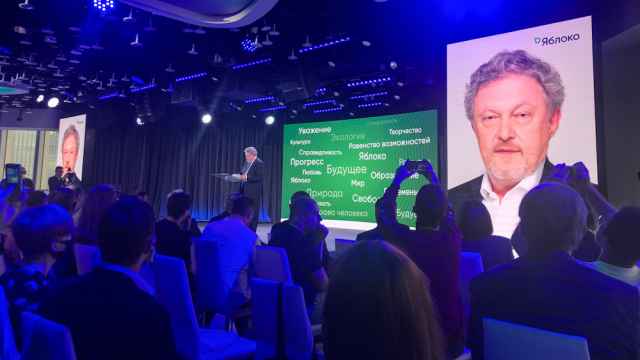Jailed Kremlin critic Alexei Navalny’s team is offering rewards in exchange for evidence and information about the August 2020 nerve-agent poisoning that nearly killed him, they said on Thursday.
The opposition leader’s associates have launched a new website documenting all that is currently known about his poisoning, including Western governments’ conclusions that he was poisoned with a banned nerve agent and investigative journalists’ findings that linked the poisoning to Russia’s security services.
“We want to collect even more evidence so that the whole world knows who is behind the poisoning of Navalny,” they wrote.
The largest reward is 3 million rubles ($40,700) in exchange for video surveillance footage from Navalny’s hotel in Siberia on the day of his poisoning.
His team is also offering 1.5 million rubles ($20,300) for information about the poisoning or alleged FSB poisoners “which significantly complements the overall picture and provides additional irrefutable evidence, as well as for information about other similar special operations.”
The last reward, 500,000 rubles ($6,800), is for information about what Navalny’s poisoners are doing today and what happened to them following the release of the investigations.
“If we can verify your information and it turns out to be valuable enough, we will transfer the reward to the cryptocurrency wallet you specified,” the website says.
The website does not specify the funding source for the reward money.
Navalny fell severely ill on a flight in Siberia, forcing the plane to make an emergency landing in Omsk. He was later evacuated to Germany, where he spent two months in a coma and several more in recovery.
Western scientists concluded Navalny was poisoned with the Soviet-designed nerve agent Novichok and Navalny alleges the attack was carried out on the Kremlin’s orders. An investigation by Bellingcat, The Insider, Der Spiegel and CNN indicated that Russia’s Federal Security Service (FSB) was behind the poisoning. The Kremlin has denied any involvement.
Following his return to Russia, Navalny was sentenced to 2.5 years in a prison colony for violating parole while in recovery abroad. In June, his opposition groups were banned within Russia as “extremist” organizations, prompting most of his aides to flee abroad to avoid criminal prosecution.
Despite pressure from the West, Russia has refused to open a criminal probe into Navalny’s poisoning.
A Message from The Moscow Times:
Dear readers,
We are facing unprecedented challenges. Russia's Prosecutor General's Office has designated The Moscow Times as an "undesirable" organization, criminalizing our work and putting our staff at risk of prosecution. This follows our earlier unjust labeling as a "foreign agent."
These actions are direct attempts to silence independent journalism in Russia. The authorities claim our work "discredits the decisions of the Russian leadership." We see things differently: we strive to provide accurate, unbiased reporting on Russia.
We, the journalists of The Moscow Times, refuse to be silenced. But to continue our work, we need your help.
Your support, no matter how small, makes a world of difference. If you can, please support us monthly starting from just $2. It's quick to set up, and every contribution makes a significant impact.
By supporting The Moscow Times, you're defending open, independent journalism in the face of repression. Thank you for standing with us.
Remind me later.


